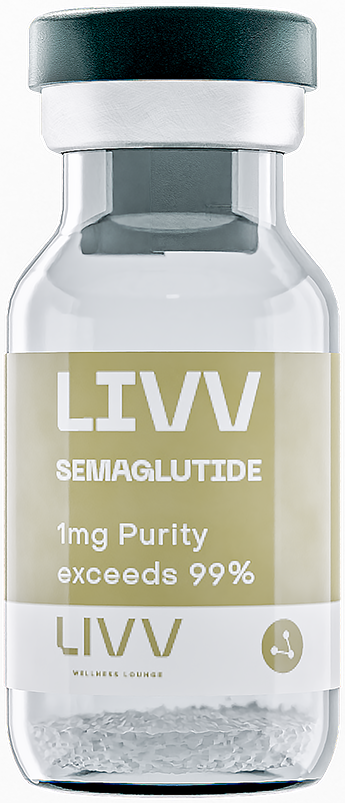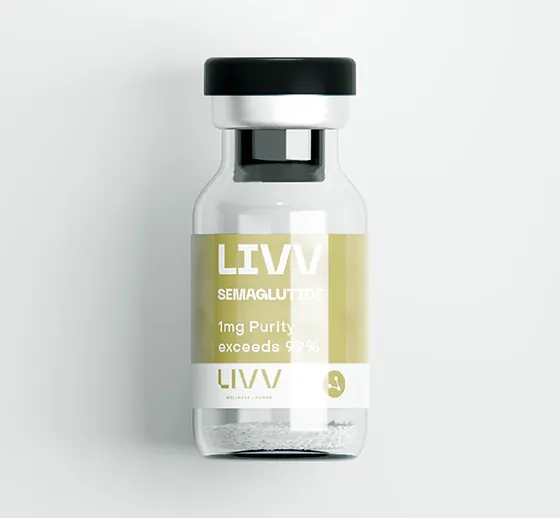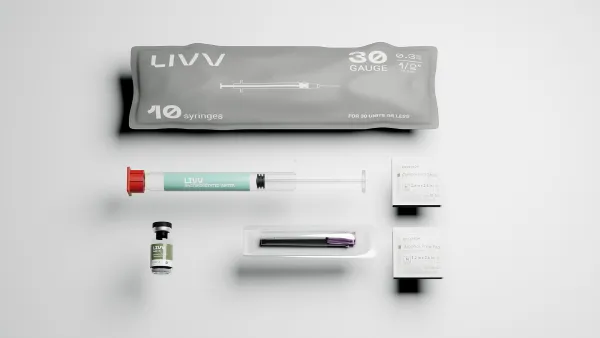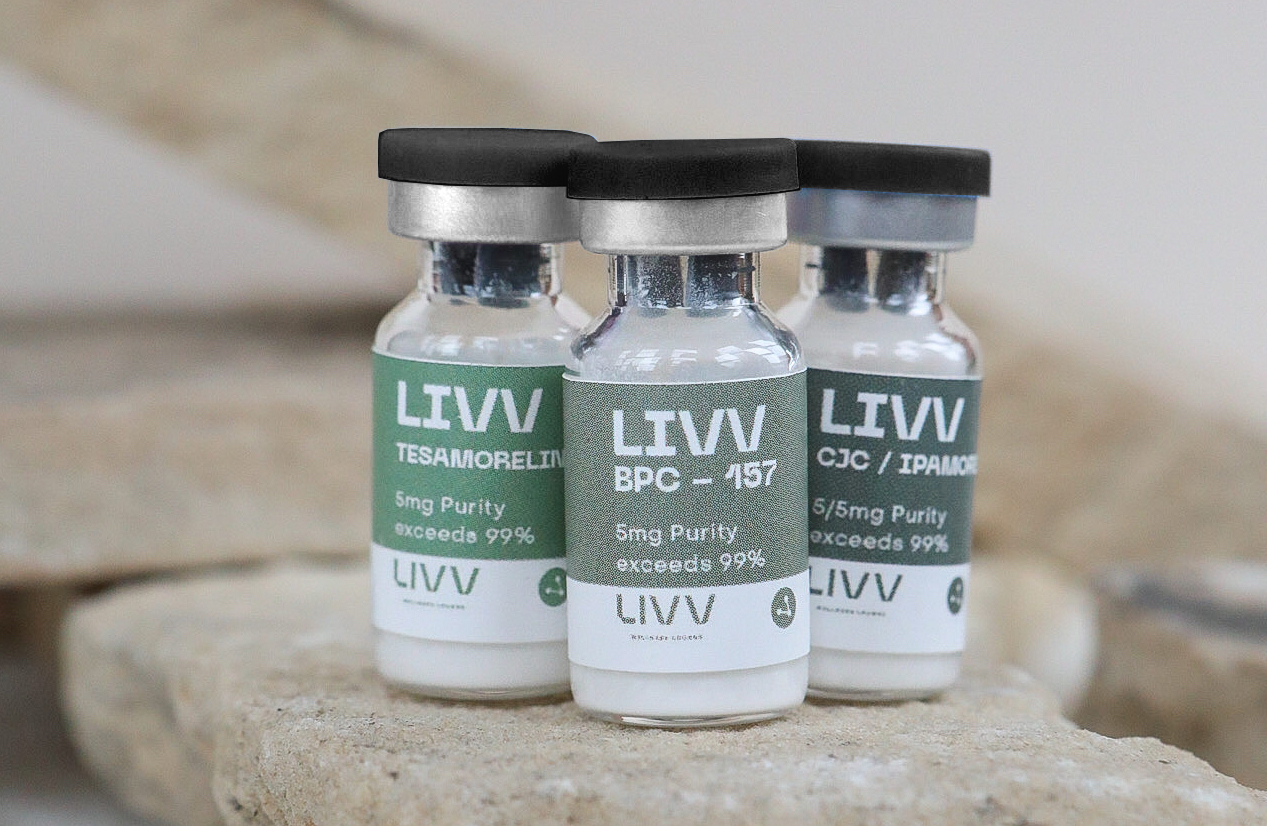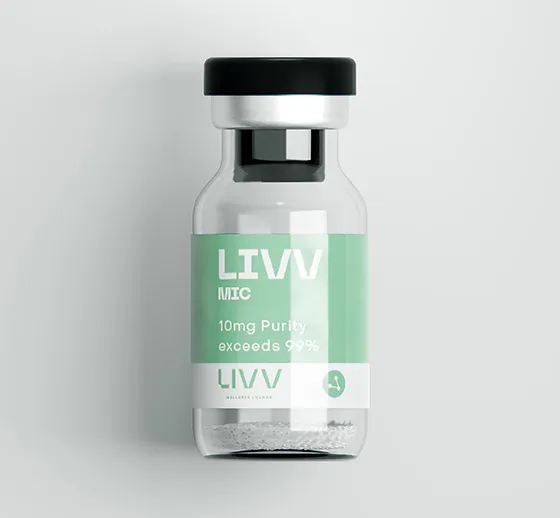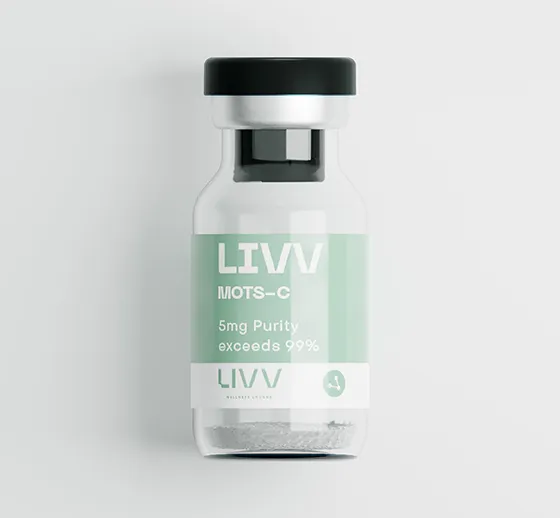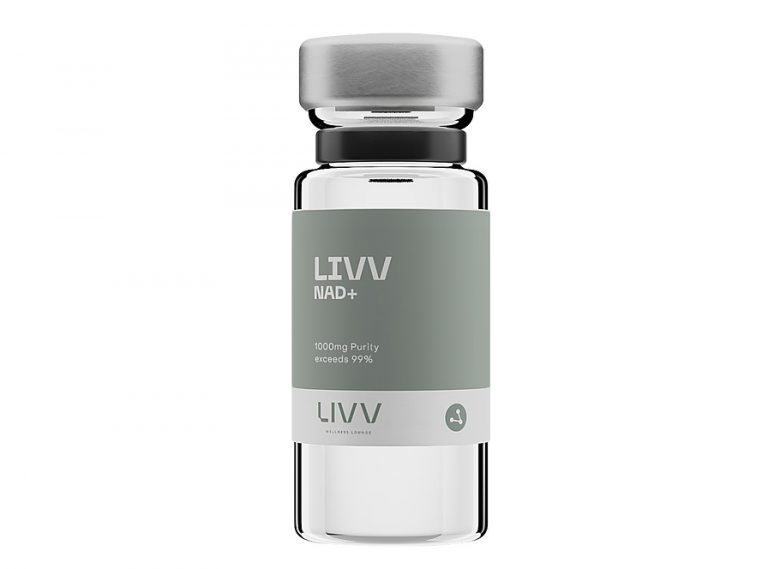Semaglutide 1mg
$325.00
Inhibits fat production
Lowers blood-glucose
Weightloss
Semaglutide is a medication that is used to help manage blood sugar levels in adults with type 2 diabetes. It belongs to a class of medications called GLP-1 receptor agonists, which work by increasing the production of insulin and reducing the amount of glucose produced by the liver.




Semaglutide is usually given as a subcutaneous injection once a week.
Inject 50 units 1x/week. Bundle: 1st month – start with 1mg vial –> 2nd month 2mg vial –> 3rd month – 4mg vial
PRECAUTIONS
Semaglutide should not be used in people with type 1 diabetes, or in people with diabetic ketoacidosis. It is also not recommended for use during pregnancy or breastfeeding. If you are considering semaglutide as a treatment for type 2 diabetes, talk to your doctor to see if it’s right for you. Your doctor can help you understand the benefits and risks of this medication and help you manage any side effects you may experience. Semaglutide stimulates fat destruction and lowers blood glucose levels.
INTERACTIONS
Semaglutide can interact with other medications, so it’s important to let your doctor know about any other medications you are taking before starting treatment with semaglutide.
SIDE EFFECTS
Common side effects of semaglutide include nausea, vomiting, diarrhea, and constipation. Other side effects may include headache, abdominal pain, and decreased appetite.
GENERAL CONSIDERATIONS
Medical Consultation:
Always consult with a healthcare provider or medical professional before starting any peptide-based treatment. They can assess your specific health needs, potential interactions, and contraindications.
Allergies and Sensitivities:
Some individuals may be allergic or sensitive to specific peptides or ingredients in peptide formulations. If you have known allergies or sensitivities, inform your healthcare provider before starting any treatment.
Drug Interactions:
Peptides may interact with certain medications. It’s important to discuss all medications, supplements, and treatments you are currently taking with your healthcare provider to identify potential interactions.
Dosage and Administration:
Follow the recommended dosage and administration instructions provided by your healthcare provider or the manufacturer. Avoid self-dosing or altering dosages without professional guidance.
Contraindications:
Some peptides may have contraindications for certain medical conditions. Your healthcare provider can help determine if a specific peptide is safe for your condition.
Pregnancy and Breastfeeding:
If you are pregnant, planning to become pregnant, or breastfeeding, consult with a healthcare provider before using any peptides. Safety during pregnancy and breastfeeding may vary.
Potential Side Effects:
Be aware of potential side effects associated with specific peptides. While many peptides are considered safe, side effects can occur, and it’s important to discuss any unusual symptoms with your healthcare provider.
Quality and Source:
Ensure that the peptides you use are obtained from reputable sources and are of high quality. Quality control is crucial to minimize risks.
Monitoring:
Depending on the peptide and its intended use, your healthcare provider may recommend regular monitoring of certain health parameters, such as hormone levels or blood markers.
Long-Term Effects:
The long-term effects of some peptides may not be well understood, so it’s important to discuss your treatment goals and duration with your healthcare provider.
Compliance:
Adhere to the recommended treatment plan and schedule provided by your healthcare provider. Skipping doses or discontinuing treatment prematurely may affect the desired outcomes.
Individual Response:
Peptides can have variable effects from person to person. Be patient and realistic about the expected results, and communicate regularly with your healthcare provider about your progress. Remember that peptides are a relatively new area of research and clinical use, and the understanding of their safety and efficacy is continually evolving. Consulting with a knowledgeable healthcare provider who is experienced with peptide therapies is essential for making informed decisions about their use.
ALL ARTICLES AND PRODUCT INFORMATION PROVIDED ON THIS WEBSITE ARE FOR INFORMATIONAL AND EDUCATIONAL PURPOSES ONLY.
The products offered on this website are not medicines or drugs and have not been approved by the FDA to prevent, treat or cure any medical condition, ailment or disease.
Semaglutide is a medication used to manage type 2 diabetes and may aid in weight loss.
Semaglutide is a medication that is used to help manage blood sugar levels in adults with type 2 diabetes. It belongs to a class of medications called GLP-1 receptor agonists, which work by increasing the production of insulin and reducing the amount of glucose produced by the liver. Semaglutide has been shown to help improve blood sugar control in people with type 2 diabetes, and may also lead to weight loss and reduced risk of cardiovascular disease.
WHAT’S IT USED FOR?
Inhibits the production of fat
What’s Inside Semaglutide
Semaglutide stimulates fat destruction and lowers blood glucose levels, which has the following benefits:



